INSIDE World Music presents:
Balkan Voices: THE KOLEVI ENSEMBLE
Traditional Instrumental and Vocal Music from Bulgaria
** Saturday, November 11th, 2006 8 PM **
** Concert and Dance Party **
** Bulgarian Singing and Instrumental Workshops Saturday, November 11, 3:00 PM **
** Bulgarian Dance Workshop Friday, November 10,7:30 PM **
Beck Center for the Arts
17801 Detroit Avenue, Lakewood, OH 44107
Call 216-521-2540 for tickets.
Advance tickets are $17 for adults and $12 for students (tickets are $20 at the door). To order tickets, call the Beck Center at 216-521-2540.
INSIDE World Music and the Beck Center for the Arts continue their 2006-2007 season of World Music events with the KOLEVI ENSEMBLE from Bulgaria live in a concert and dance party in the Beck Center痴 Armory Recital Hall on Saturday, November 11th. A Bulgarian national treasure transported to the U.S, the Kolevi Ensemble is led by Bulgarian virtuoso gadulka (folk fiddle) player Nikolai Kolev, and features the stunning singing of Donka Koleva and her daughter Maria. The smoky-warm sound of Valeri Georgiev痴 kaval (folk flute) and Stoyan Kostov痴 glittering tambura (lute) playing round out the group. Hypnotic and powerful, their music is a unique blend of east and west -- dizzying meters and tempos, surprising harmonies, and songs alive with the pain and joy of life in Bulgaria. [More about the artists and their instruments below.] A dance party with live music by the Kolevi Ensemble and Bulgarian-style refreshments follows the concert.
*** WORKSHOPS IN BULGARIAN SINGING, MUSIC AND DANCE ***:
Learn to sing and play like a Bulgarian! Donka Koleva will conduct a workshop in Bulgarian singing on Saturday November 11 at 3:00 PM. Instrumental workshops in playing Bulgarian tambura, kaval and gadulka will also be offered. All members of the Kolevi are experienced teachers. Advanced registration is required.
Learn Bulgarian dances! Larry Weiner, of this country痴 foremost experts in traditional Balkan dance will conduct a workshop in Bulgarian dance the night before the concert, on Friday, November 10 at 7:30 PM in the Beck Center Armory Recital Hall. Bulgarian music is famous for its complex rhythms such as 5/16, 7/16 and 11/16; learn how to move to them!
The cost of the workshops is $15. To register for the workshops call the Beck Center at (216) 521-2540.
The Beck Center for the Arts is located just 10 minutes west of downtown Cleveland at 17801 Detroit Avenue, Lakewood, OH 44107. Convenient onsite parking.
INSIDE World Music is presented with the support of the Plain Dealer
~~~~~~~~~~~~~~~~~~~~~~~~~~~~~~~~~~~~~~~~~~~~~~
THE KOLEVI ENSEMBLE: More about the artists
DONKA and NIKOLAI KOLEV, are graduates of the Shiroka Luka Music School as well as former members of the Bulgarian State Folk Ensemble "Sliven". In 1992 Nikolai Kolev founded the prize-winning ensemble "Balkanski Glasove". A collector and arranger of original songs from Bulgarian villages, Nikolai has accompanied many famous Bulgarian singers. Since coming to the United States, the Kolevi ensemble has been enthusiastically received in workshops and concerts on the east and west coasts of the U.S. as they have presented the rich musical heritage of the homeland in the Rose Valley of central Bulgaria. The group received a flood of invitations to national festivals throughout the world following their first place award winning performance at the Bulgarian national folk festival in Varna. Singer Donka Koleva, is a native of the village of Tuzla in Stara Zagora in Bulgarian Thrace. She graduated from the musical folklore school in Shiroka Luka and performed for 3 years with the Sliven Folk Dance and Music Ensemble. She was the director of the Folk Song Chorus of Sopot, and has participated in many singing competitions throughout Europe. In 1994, Donka started recording with the National Radio and Television in Bulgaria. In 1997, her recording of "Javore" was song of the year. As a teacher, she is sought-after for her careful technique, gorgeous voice and iron fist. At just 22 years of age MARIA KOLEVA is a fine singer in her own right. She returned to Bulgaria in 2005 to record her own CD of Thracian folk songs which has been received enthusiastically by fans of Balkan music in the United States and Europe.
Kaval player VALERI GEORGIEV is from the Bulgarian Danube town of Ruse. He studied kaval (Bulgarian flute) in Kotel and graduated from the Plovdiv Conservatory with a degree in folk-ensemble conducting. He performed in the Plovdiv-based ensemble Puldin, then later directed the folk-theatrical group Najden Kirov and performed with Orkestur 滴oro� in Ruse. Valeri was the composer for the theater piece 敵eracite� and has arranged many folk songs and instumental melodies. He has accompanied many famous singers, including Kalinka Vulcheva, Yanka Rupkina, Vesela and Lyuben Bojkovi and Kremena Stancheva.
STOYAN KOSTOV has been playing Bulgarian tambura for 35 years. He graduated from the folk music school in Kotel and the Plovdiv Academy of Music and Dance. He performed with the Ensemble 典rakiya� in Plovdiv. Stoyan played tambura with the Harmanliska Troika and guitar with the Ograzhden ensemble in Sandanski, where he also directed the 哲. Vaptsarov� Folk Ensemble.
~~~~~~~~~~~~~~~~~~~~~~~~~~~~~~~~~~~~~~~~~~~~~~
ABOUT THE INSTRUMENTS:
The GADULKA is a traditional Bulgarian fiddle with 3 melody strings that are bowed and 10 to 12 sympathetic strings underneath the main strings. The sympathetic strings are not fingered but vibrate on harmonics, giving a rich texture and shimmering quality to the sound. The gadulka is probably the most popular and also most ancient folk instrument in Bulgaria today. Although loud and resonant, its distinctive Slavic voice is warm and soothing.
The KAVAL, a rim-blown wooden flute, is the most commonly used wind instrument in Bulgaria. It has a reputation as a soft and tender instrument and is often referred to in Bulgarian as meden kaval (塗oneyed kaval�). Kaval players are able to sound two octaves simultaneously which the lower register a smoky, warm, almost growl-like quality. The instrument has seven holes at the front and one at the back and four extra little holes near the lower end. These small holes are very important for the intensity of the sound and the timbre. These extra holes are called dushnitsi or dyavolski dupli ("devil's holes"). A legends says the devil stole a sleeping shepherd痴 kaval. Intending to destroy the instrument the devil drilled four little holes in it. Instead of destroying it, the kaval sounded even better. The shepherd played the kaval and defeated the devil. In any case, the flexibility and wide range of timbres available on the instrument have made it a favorite instrument in folk-inspired jazz and fusion groups as well as traditional ensembles.
The Bulgarian TAMBURA is a fretted, long-necked lute with four courses of wire strings, tuned to E, B, G and D. Similar to other stringed instruments found in the Balkans and Eastern Europe such as the Croatian and Serbian tamburica and the Greek bouzouki, it has its own distinctive sound and intricate technique. The Bulgarian tambura is used both for accompaniment and as a solo melody instrument.
~~~~~~~~~~~~~~~~~~~~~~~~~~~~~~~~~~~~~~~~~~~~~~
About the Dance Teacher:
Larry Weiner is one of this country痴 foremost experts in traditional dance, music and customs of the Balkan Peninsula. He has made numerous field trips to the former Yugoslavia, Bulgaria, Italy, Hungary and Greece to record and film folk music and dance as living social traditions. Both a superb teacher and excellent dancer, he has a knack of making seemingly complex dances and rhythms accessible and fun for dancers at all experience levels. As he says, "It's not how you do the dance, but how you feel when you do the dance that counts." A dance teacher dance since 1964, he frequently teaches at metro-DC-area music and dance festivals, has conducted folk culture programs for the US State Department, and has presented seminars at the North American Folk Music and Dance Alliance痴 annual conference. Larry has taught at dance camps throughout the United States including both East and West Coast Balkan Music camps, KlezKamp, Stockton Folk Dance Camp, and the Mendocino Folklore Camp. Larry also plays the tapan (the traditional big drum found in the Balkans) in several metro DC area bands, and has served as co-director with Margaret Loomis for the Old World Music and Dance Camps.
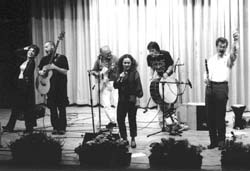


 Reclaiming American Judaism's Lost Legacy:
Reclaiming American Judaism's Lost Legacy: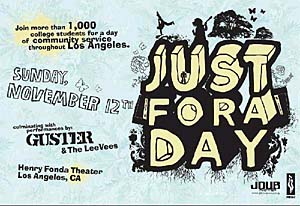 JUST FOR A DAY
JUST FOR A DAY  20. Juedische Kulturtage Muenchen
20. Juedische Kulturtage Muenchen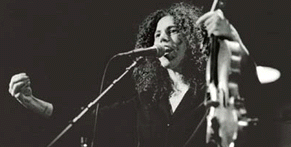
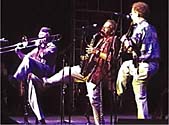
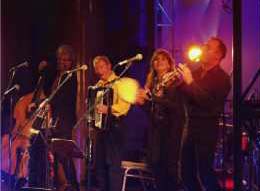
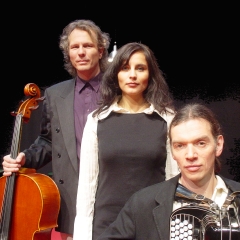
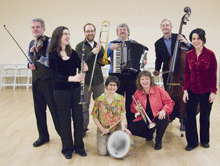
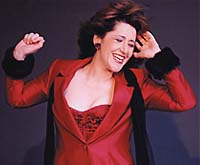
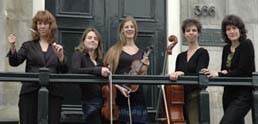
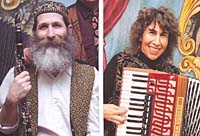 Fishel Bresler & Shelley Katsh
Fishel Bresler & Shelley Katsh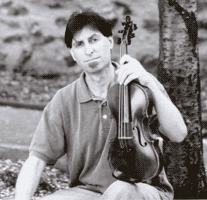
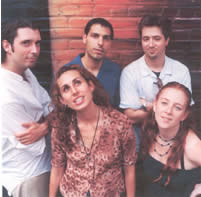
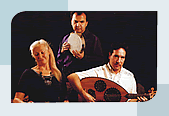 Memories of Spain
Memories of Spain Walter Zev Feldman, known both for his scholarly contributions to Jewish Music history and for his performances and teaching of Jewish music and dance, is artistic director of "Music and Dance of Jewish Traditions: Songs of Love & Longing," a new series at NYC's 92nd St. Y this fall/winter.
Walter Zev Feldman, known both for his scholarly contributions to Jewish Music history and for his performances and teaching of Jewish music and dance, is artistic director of "Music and Dance of Jewish Traditions: Songs of Love & Longing," a new series at NYC's 92nd St. Y this fall/winter.
 Rashanim's new CD: '
Rashanim's new CD: ' Talat's new CD: '
Talat's new CD: '